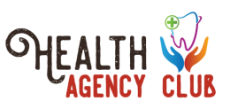Healthcare delivery has transformed dramatically over the past decade. With the shift to value-based care, clinics must rethink their operations fundamentally. Meanwhile, administrative burdens continue to grow, with documentation requirements and compliance regulations consuming more staff time than ever. These changes arrive as many clinics still struggle with the financial and operational aftermath of the pandemic. Smaller and midsized practices may find these challenges insurmountable without dedicated strategic planning and analysis departments. Consulting partnerships provide access to specialized expertise without the overhead of full-time specialists.
Targeted expertise when needed
Healthcare consulting offers clinics access to subject matter experts precisely when they’re needed. When dealing with regulatory challenges, implementing new technology, or redesigning workflows, consultants bring specialized knowledge that most practices cannot maintain in-house. This model allows clinics to tap into expertise developed across multiple healthcare organizations rather than relying solely on internal experience. Consultants who have worked with dozens of similar practices bring perspective on what works, what doesn’t, and which emerging approaches show the most promise. These insights would take years for an individual practice to develop independently.
Challenges to financial sustainability
With tightening margins and unpredictable reimbursement, financial sustainability remains a top concern for healthcare providers. Consultants specializing in revenue cycle management, payer contract negotiation, and financial planning help clinics maximize appropriate reimbursement while identifying opportunities for cost reduction without compromising care quality. Unlike general business consultants, healthcare financial experts understand the unique complexities of medical billing, coding, and healthcare-specific accounting practices. Their interventions often deliver ROI far exceeding their fees, making consulting an investment rather than an expense.
Direct impact on clinic productivity
Clinic productivity represents the lifeblood of sustainable operations, yet many practices struggle to measure and optimize this crucial metric. Consultants bring specialized tools and methodologies to analyze workflow efficiency, resource utilization, scheduling practices, and staffing models. By identifying bottlenecks and implementing targeted improvements, these specialists help clinics serve more patients while reducing provider burnout.
The productivity gains from well-executed consulting engagements extend beyond simple throughput metrics. Clinical workflows increase efficiency, so providers spend more time on patient care. Staff satisfaction improves, reducing costly turnover. Patient experience benefits from shorter wait times and more focused provider attention, factors that directly impact satisfaction scores and retention rates.
Technology selection and implementation
The healthcare technology marketplace has exploded with solutions promising to solve every challenge, from scheduling to clinical decision support. For clinic leaders already stretched thin by daily operations, evaluating these options and managing implementations becomes nearly impossible without external support. Healthcare consultants help practices navigate technology decisions by aligning solutions with organizational goals, vetting vendors, planning implementations, and managing change processes. Their experience with similar implementations helps clinics avoid costly mistakes and accelerate time-to-value for new technologies.
Building internal capacity
The most valuable consulting relationships go beyond solving immediate problems; they build the clinic’s internal capacity for continuous improvement. Through knowledge transfer, training, and mentorship, effective consultants leave organizations better equipped to handle future challenges independently. This sustainability factor distinguishes strategic consulting partnerships from one-off engagements. By investing in staff development alongside operational improvements, clinics create lasting value long after the consultant’s departure.




